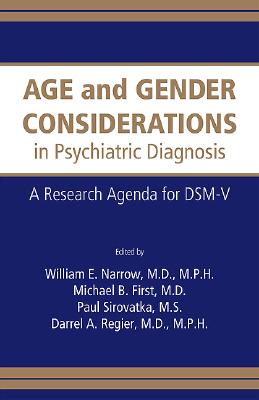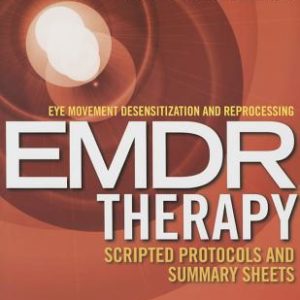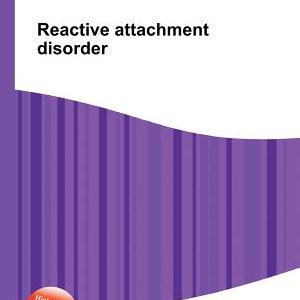Age and Gender Considerations in Psychiatric Diagnosis: A Research Agenda for Dsm-V
$60.30
Description
Written to help identify major gaps in our knowledge of how gender and age affect psychiatric diagnoses and to stimulate much-needed research to fill these gaps, Age and Gender Considerations in Psychiatric Diagnosis serves as both a valuable short-term source for the DSM-V Task Force and its disorder-specific workgroups, and a long-term guide for future studies that will contribute to revised psychiatric classifications in these three areas.
Here, 47 experts present findings in three areas of psychiatric research that historically have been neglected but rightfully have received increasing attention in recent years and thus are worthy of investigation into their clinical features, etiology, and course:
1. Significant gender differences in prevalence, symptom profiles, and risk factors for mental disorders, including neurodevelopmental, neurophysiological, and environmental factors for men and women that cut across diagnostic categories-for example, the critical importance of gender in how psychiatric illness develops and presents; DSM’s approach to gender to date; and relevant research findings and gaps in the epidemiology, etiology, and pathophysiology of disorders and the gender-related expression of psychopathology, including the controversial and complex question of whether DSM should have different diagnostic criteria for men and women.
2. Mental disorders in infancy and early childhood, including diagnosis and measurement of psychopathology; PTSD and social and cognitive factors related to the experience of stress; reactive attachment disorder (unique in part because of its specificity to early childhood); mood and anxiety disorders and difficulties in diagnosis; sleep disorders, including two new disorders, Night-Waking Dysomnia and Sleep-Onset Dysomnia; feeding disorders, including the need to address overeating and overfeeding (especially given the alleged U.S. epidemic of obesity); early childhood manifestations of behavior disorders; and early symptoms and diagnosis of autism.
3. Mental disorders in the elderly, such as dementia and depression, once considered normal consequences of aging but now understood to represent mental disorders, including the need to identify specific brain structure abnormalities, biomarkers, and the many contributing biological, psychosocial, and environmental factors of mental illness in late life and to understand their roles in the elderly to better diagnose and monitor disease progression.
Written for clinicians and researchers alike, this thought-provoking compendium contributes critical information that helps enhance our understanding of the causes of mental disorders, develop effective preventive and treatment interventions, and inform future editions of DSM and ICD.
Editor: Narrow, William E
Topic: Medical / Nursing
Media: Book
ISBN: 890422958
Language: English
Pages: 362
Additional information
| Weight | 1.12 lbs |
|---|---|
| Dimensions | 8.99 × 6.16 × 0.81 in |















Reviews
There are no reviews yet.